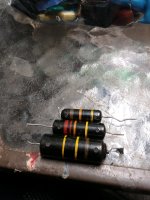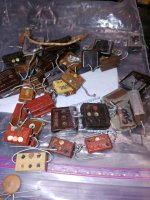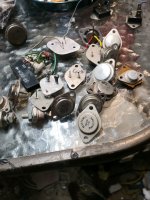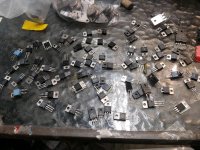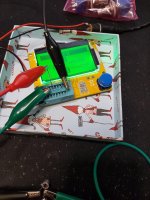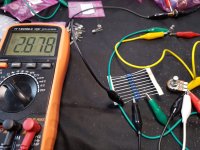As you may have surmised by now — there is no one-stop drop & complete rundown of transistors in fuzz pedals.
Any that claim to have such, I bet you could still find plenty missing from their rundown.
There is simply too much information out there, and too many fuzz circuits to explore. The best approach I can suggest is to pick one particular fuzz pedal that you liked the sound of, in demos and in songs you've heard or from playing a friend's or in-store demo unit. Then analyse that particular circuit. Find as many variants of it as you can, learn/try-to-figure-out why somebody chose to build their variant the way they did — perhaps parts are obsolete, so a near substitute was found; maybe the builder prefers the tone or the affordability of easy-to-find inexpensive off-the-shelf parts for his/her build.
On your build journey you'll pick up info and learn more by doing and exploring — and retain it — than if someone had given you a complete rundown.
Enjoy your journey...
High gain
Low gain
Silicon
Germanium
Expensive
Cheap
Rare
Common
Smooth
Spitty
Organic
Velcro
single, double, triple, quadruple...


